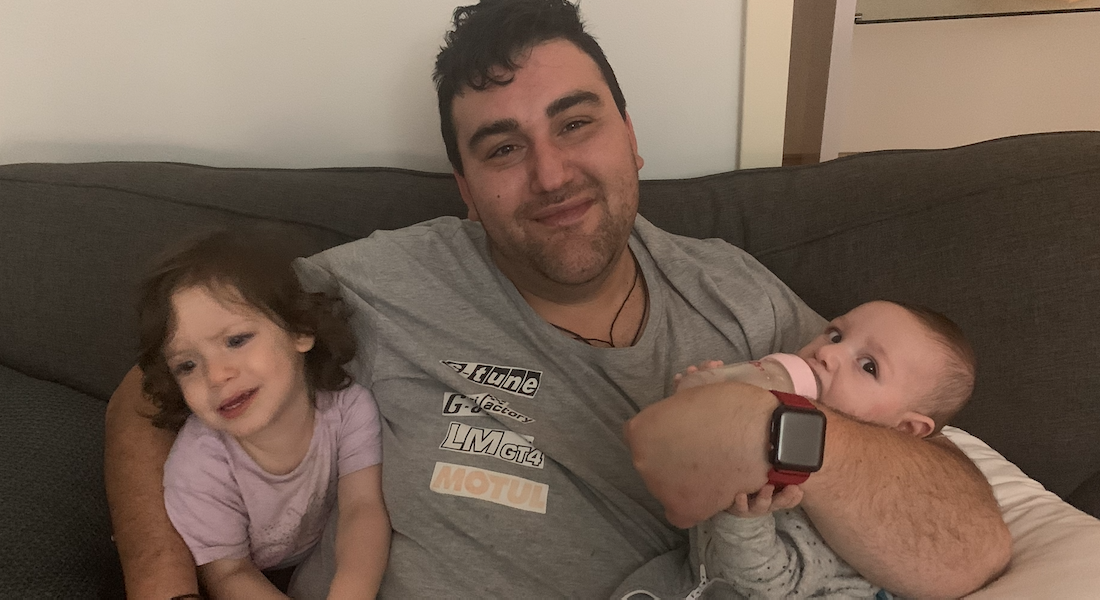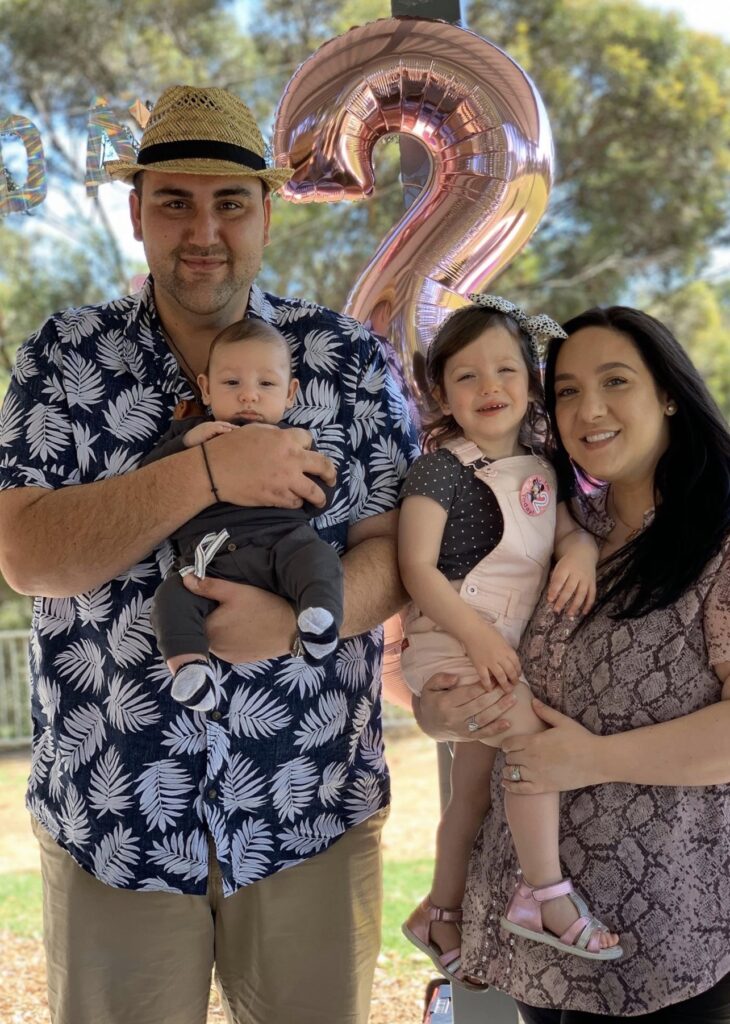
In 2017, at the age of 30, Dimitri Garbas' battle with Multiple sclerosis (MS) began during the "prime" of his life. His wife was pregnant with their first child and life couldn’t have been any better.
However, MS has not only changed his life, but also his loved ones.
Multiple sclerosis is a condition of the central nervous system, interfering with nerve impulses within the brain, spinal cord and optic nerves. It is characterised by sclerosis a Greek word meaning 'scars'. These scars occur within the central nervous system and depending on where they develop, manifest into various symptoms.
He recalls waking up on September 16th, 2017 with what he thought was a sore back and numbness to 75% of his body. "We always think never me and this stuff doesn’t happen close to home, and yet here I was unable to stand or even use my left side to get up. I honestly thought I had done something to my back and that it was a nerve issue that would heal."
But it was more than that and he remembers "undergoing a massive neurological attack that not only felt like my body was shutting down but left my mental health in a broken state."
After seeing a physiotherapist, chiropractor, GP, and undergoing tests and MRI’s, the neurologist delivered the news: "Mr Garbas you have Multiple Sclerosis your MRI’s discovered 40 lesions in your brain and 3 in your spine & 'from the moment you woke up like this your life will never be the same again'."
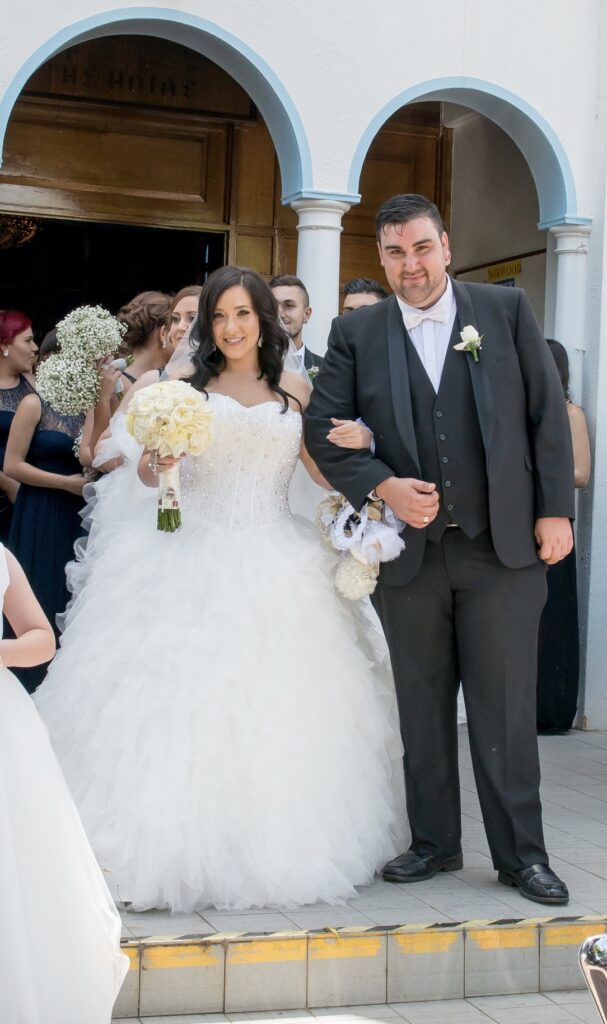
There is currently no known cure for MS however there are a number of treatment options available to help manage symptoms and slow progression of the disease.
Physically to most Dimitri probably looks just fine, but they don’t call it the 'invisible disease' for nothing. Every day is a challenge and the different symptoms he faces on the daily include:
- Pain areas: in the back or eyes
- Pain circumstances: can occur in the back due to head nod or with eye movement
- Tremor: can occur during precise movements, in the hands, or limbs
- Muscular: cramping, difficulty walking, inability to rapidly change motions, involuntary movements, muscle paralysis, muscle rigidity, muscle weakness, problems with coordination, stiff muscles, clumsiness, muscle spasms, or overactive reflexes
- Whole body: fatigue, dizziness, heat intolerance, poor balance, or vertigo
- Sensory: pins and needles, abnormality of taste, reduced sensation of touch, or uncomfortable tingling and burning
- Visual: blurred vision, double vision, or vision loss
- Speech: difficulty speaking or slurred speech
- Sexual: erectile dysfunction or sexual dysfunction
- Also common: depression, difficulty raising the foot, difficulty swallowing, flare, headache, heavy legs, numbness of face, rapid involuntary eye movement, sleep deprivation, tongue numbness, or weakness
He experiences a minimum of 5-6 various symptoms daily.
But it doesn't stop there. Mentally, this disease has destroyed him and left him in very dark places, Dimitri stresses. He has difficulty thinking and understanding and suffers from depression, anxiety and mood swings.
"My children and my wife are what keep me going. It's hard for me to write this as it's very emotional for me. I’m not the father or husband I was supposed to be. I cant pick up my daughter or if I do it's for a minute at best. I can’t chase after her I barely have the strength to read a book. Now to a 2 year old they don’t understand why mum can pick them up but dad can’t. It’s not something they are equipped to deal with and it breaks my heart every time she asks to be picked up and I can’t, it hurts every time my fatigue wins and the battle. My daughter just thinks I would rather sleep all day than play with her," Dimitri added.
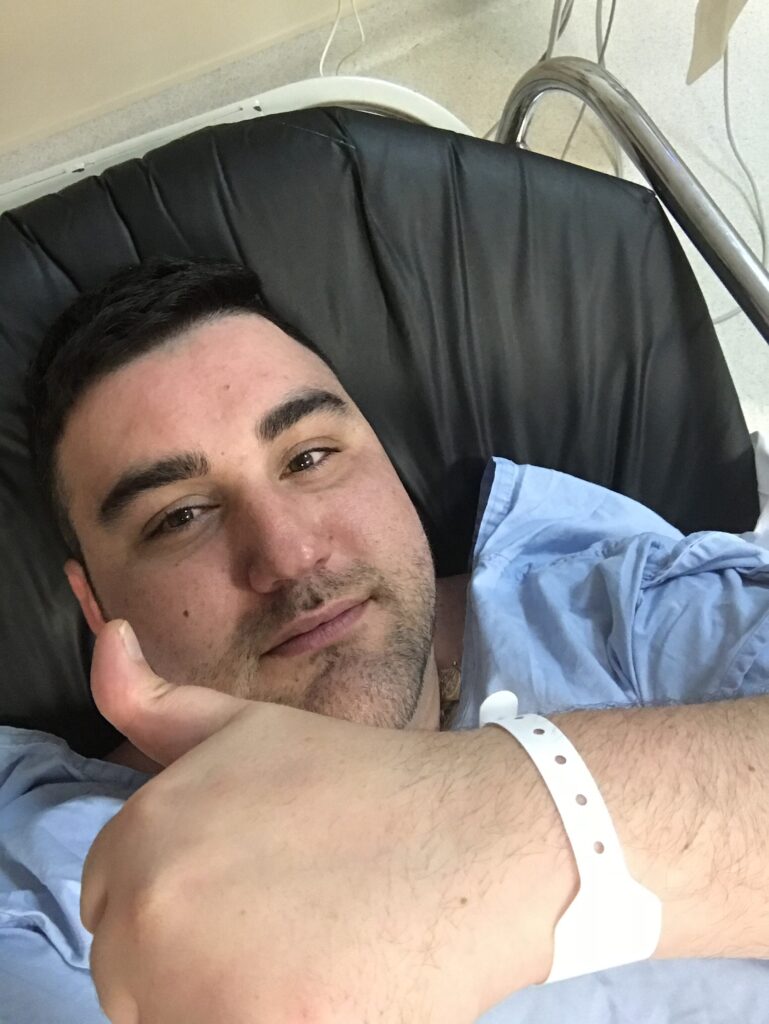
The young Greek Australian hopes to undertake Hematopoietic stem cell transplantation (HSCT) for MS in Russia. It is currently the only treatment that has been scientifically proven to help put a stop to the progression of the disease.
"Although not a certainty, in some situations HSCT has also proven to not just stop but reverse disability caused in some patients. It’s extremely unfortunate that this treatment, is only available in Australia for MS patients with a strict criteria, once the disease has actually resulted in significant unrepairable damage. With God in my heart and support of all family & friends, I am prepared to try HSCT. I for one will not sit back waiting and wondering what tomorrow may bring in the form of disability."
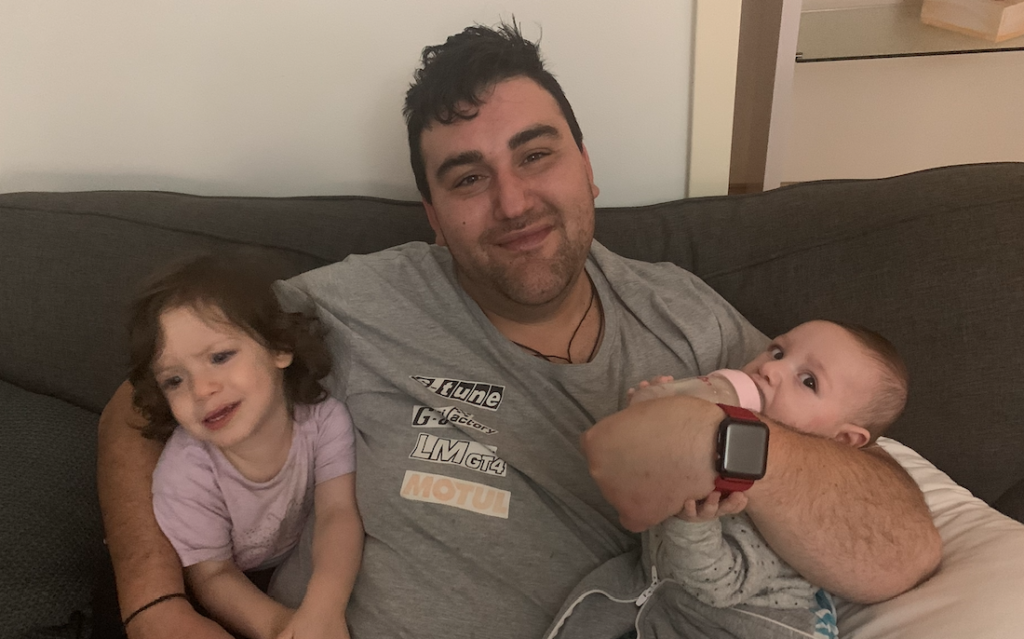
"I could accept it if I was born like this or had an accident that lead me here, but this illness just appearing I can’t accept it and I won’t. I have to fight not just for me but for my wife and children," he concluded.
Dimitri's 'life changing' treatment in Russia totals $70,000. If you would like to donate, please visit his GoFundMe page.

